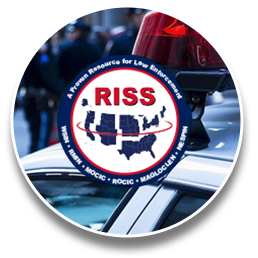See Our Work
IIR’s portfolio is centered around administering programs and initiatives that support law enforcement and criminal justice agencies and personnel around the country and the world. IIR supports the majority of these efforts on behalf of the federal government, including the U.S. Department of Justice, the U.S. Department of Homeland Security, and the U.S. Department of State. IIR’s portfolio includes programs on officer safety and wellness, criminal justice information and criminal intelligence sharing, violence reduction (including violence against women), gang reduction, anti-human trafficking, anti-terrorism training, opioid abuse reduction, homeland security, task force operations, and sex offender registration.
Partners:
Programs We Support


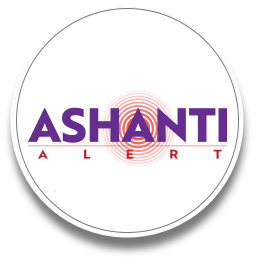
ASHANTI ALERT PROGRAM
The National Ashanti Alert Network Training and Technical Assistance (TTA) Program supports the development, implementation, and maintenance of a national missing person alert network set forth by the Ashanti Alert Act. This network seeks to enable states, tribes, and territories to share missing adult alerts across jurisdictions, with the goal of quickly locating and bringing missing individuals home safely. This project also provides TTA to jurisdictions seeking to establish or enhance an existing missing persons program.
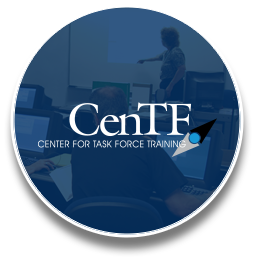
CENTER FOR TASK FORCE TRAINING™ (CenTF) PROGRAM
The Center for Task Force Training (CenTF) Program provides training and technical assistance services to law enforcement agencies, focusing on the management of multijurisdictional task force operations. The CenTF Program supports the Center for Task Force Leadership and Integrity (CTFLI), a series of online trainings for vetted law enforcement professionals that offers no-cost, specialized training and resources focused on reducing liability, enhancing the safety and effectiveness of task forces, and identifying organizational and operational concepts of successful task force management and privacy, civil rights, and civil liberties issues related to task force operations.

28 CFR Part 23
The 28 CFR Part 23 regulation is a guideline for law enforcement agencies. It contains implementing standards for operating federally funded, multijurisdictional criminal intelligence systems.
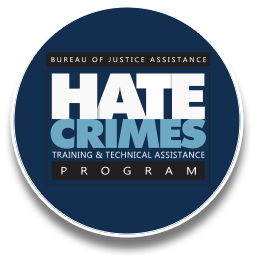
CORWELLNESS
The CorWellness program develops and delivers training, technical assistance, and resources to improve correctional officer and staff safety, wellness, resilience, and retention.
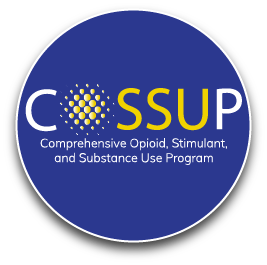
COMPREHENSIVE OPIOID, STIMULANT, AND SUBSTANCE USE PROGRAM (COSSUP)
The Comprehensive Opioid, Stimulant, and Substance Use Program (COSSUP) is focused on reducing opioid misuse and the number of overdose fatalities and supporting the implementation and enhancement of prescription drug monitoring programs. The program also includes the delivery of resources including no-cost webinars and podcasts; the latest research and data; timely publications; and notices of funding opportunities to the field, regardless of location.

GANG RESISTANCE EDUCATION AND TRAINING (G.R.E.A.T.) PROGRAM
The Gang Resistance Education And Training (G.R.E.A.T.) Program focuses on student and family life-skills development to help youth avoid delinquent behavior, violence, and gang membership. The Program offers four components designed for elementary and middle school students, instructed by certified criminal justice professionals.

GLOBAL INITIATIVE
The U.S. Department of Justice’s Global Justice Information Sharing Initiative (Global) was created to support the broadscale exchange of pertinent justice and public safety information. It promotes standards-based electronic information exchange to provide the justice community with timely, accurate, and accessible information in a secure and trusted environment.
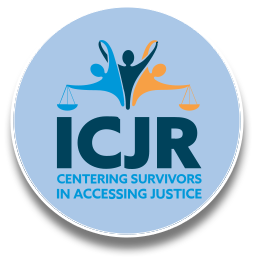
ICJR
The Improving the Criminal Justice Response (ICJR) Program encourages partnerships among state, local, and tribal governments, courts, victim service providers, coalitions, and rape crisis centers to improve the criminal justice response to domestic violence, sexual assault, dating violence, and stalking as serious violations of criminal law, and to seek safety and autonomy for victims.
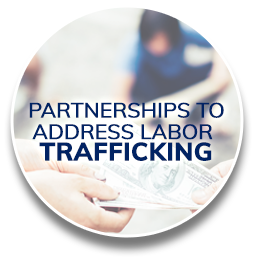
PARTNERSHIPS TO ADDRESS LABOR TRAFFICKING
The Partnerships to Address Labor Trafficking effort is designed to create resources to assist law enforcement, businesses, communities, and other stakeholders to identify, respond to, and address labor trafficking and to support its victims and survivors.

VALOR PROGRAM
The VALOR Program provides all levels of law enforcement with tools to help prevent violence against law enforcement officers and enhance officer safety, wellness, and resiliency. VALOR is a comprehensive effort that includes classroom and Web-based training, research, and resources for sworn state, local, and tribal law enforcement officers.
Many IIR courses are IADLEST-certified, which guarantees that you are receiving the most up-to-date, high-quality, and legally defensible law enforcement training in the nation. IADLEST launched the National Certification Program to establish law enforcement training standards and best practices relating to improved professionalism and skill sets for our nation’s first responders. IIR’s IADLEST-certified courses are recognized nationally and designed to meet or exceed any individual state certification requirements, ensuring that our training is accepted by all participating POST organizations around the nation for in-service or advanced training credit.
“The Institute for Intergovernmental Research has developed and submitted 14 courses that have earned IADLEST’s National Certification Seal of Excellence! These innovative courses consistently score many “best practices” for instructional design and delivery, and the quality and critical nature of the content will save the lives of officers and community members. We are proud to collaborate with the IIR team on ensuring that this exceptional training gets to the field where it is needed most.”—Mike Becar, IADLEST CEO

nsopw
The U.S. Department of Justice’s Global Justice Information Sharing Initiative (Global) was created to support the broadscale exchange of pertinent justice and public safety information. It promotes standards-based electronic information exchange to provide the justice community with timely, accurate, and accessible information in a secure and trusted environment.

NATIONAL GANG CENTER (NGC)
The National Gang Center (NGC) assists policymakers, researchers, criminal justice practitioners, direct service providers, and other community members in their efforts to reduce gang involvement and street gang activity.
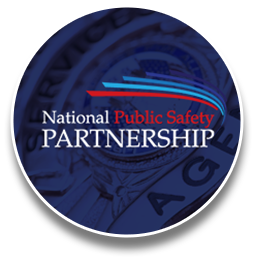
NATIONAL PUBLIC SAFETY PARTNERSHIP
The National Public Safety Partnership (PSP) provides an innovative framework for the U.S. Department of Justice to enhance its support of state, local, and tribal law enforcement and prosecution authorities in aggressively investigating and prosecuting violent criminals, especially those involved in gun crime, drug trafficking, and gang violence.

National Violence Against Women Law Enforcement Training and Technical Assistance Consortium (LETTAC)
The National Violence Against Women Law Enforcement Training and Technical Assistance Consortium (LETTAC) is focused on enhancing and strengthening law enforcement responses to and investigations of domestic violence, dating violence, sexual assault, stalking, and sex trafficking. LETTAC supports state, local, tribal, and territorial law enforcement agencies, sworn officers, civilian staff, and prosecutors through the provision of training and technical assistance.
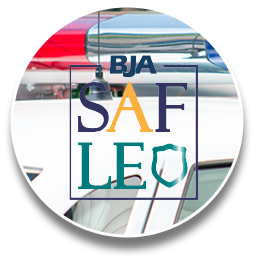
NATIONAL SUICIDE AWARENESS FOR LAW ENFORCEMENT OFFICERS (SAFLEO) PROGRAM
The National Suicide Awareness for Law Enforcement Officers (SAFLEO) Program is designed to provide the law enforcement community with better access to officer wellness resources and suicide prevention strategies. Using a multifaceted approach to address law enforcement suicide, the SAFLEO Program provides training, technical assistance, and resources to law enforcement agencies, staff, and families to raise awareness, smash the stigma, and reduce and prevent law enforcement suicide.
Many IIR courses are IADLEST-certified, which guarantees that you are receiving the most up-to-date, high-quality, and legally defensible law enforcement training in the nation. IADLEST launched the National Certification Program to establish law enforcement training standards and best practices relating to improved professionalism and skill sets for our nation’s first responders. IIR’s IADLEST-certified courses are recognized nationally and designed to meet or exceed any individual state certification requirements, ensuring that our training is accepted by all participating POST organizations around the nation for in-service or advanced training credit.
“The Institute for Intergovernmental Research has developed and submitted 14 courses that have earned IADLEST’s National Certification Seal of Excellence! These innovative courses consistently score many “best practices” for instructional design and delivery, and the quality and critical nature of the content will save the lives of officers and community members. We are proud to collaborate with the IIR team on ensuring that this exceptional training gets to the field where it is needed most.”—Mike Becar, IADLEST CEO
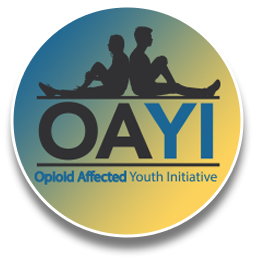
OPIOID AFFECTED YOUTH INITIATIVE (OAYI)
The Opioid Affected Youth Initiative (OAYI) is designed to assist states, local governments, and tribal jurisdictions in developing and implementing effective, data-driven, coordinated responses that address the abuse of opioids and provides services to improve public safety and outcomes for children, youth, and their families impacted by the opioid crisis.
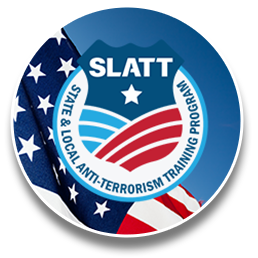
STATE AND LOCAL ANTI-TERRORISM TRAINING (SLATT®) PROGRAM
The State and Local Anti-Terrorism Training (SLATT) Program provides specialized terrorism detection, investigation, and interdiction training and technical assistance services to state, local, and tribal law enforcement and prosecution authorities throughout the United States. The SLATT Program offers classroom and online training and resources.

DRU SJODIN NATIONAL SEX OFFENDER PUBLIC WEBSITE (NSOPW)
The Dru Sjodin National Sex Offender Public Website (NSOPW) provides real-time access to registered sex offender information from states, Indian tribes, and U.S. territories from a single-search interface.
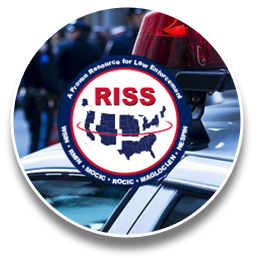
REGIONAL INFORMATION SHARING SYSTEMS® (RISS)
The Regional Information Sharing Systems (RISS) is a nationwide program that provides secure information sharing, analytical and investigative support, and officer safety event deconfliction to hundreds of thousands of local, state, federal, and tribal law enforcement and criminal justice professionals across the country.

SAFER SCHOOLS
IIR provides support to programming that develops and provides cutting-edge training and technical assistance, guiding resources and tools, and a centralized clearinghouse to advance evidence-based solutions to support law enforcement and other school safety stakeholders who work with school-aged populations in improving school safety.

Harold Rogers Prescription Drug Monitoring Program (PDMP) Training and Technical Assistance Center
The Harold Rogers Prescription Drug Monitoring Program (PDMP) Training and Technical Assistance Center provides a comprehensive array of services, support, resources, and strategies to PDMPs, federal partners, and other stakeholders to further the efforts and effectiveness of PDMPs in combating the misuse, abuse, and diversion of prescription drugs.

SEX OFFENDER REGISTRATION AND NOTIFICATION ACT (SORNA) EXCHANGE PORTAL
The Sex Offender Registration and Notification Act (SORNA) Exchange Portal is a secure online communication system that facilitates the sharing of information between sex offender registration jurisdictions.





















